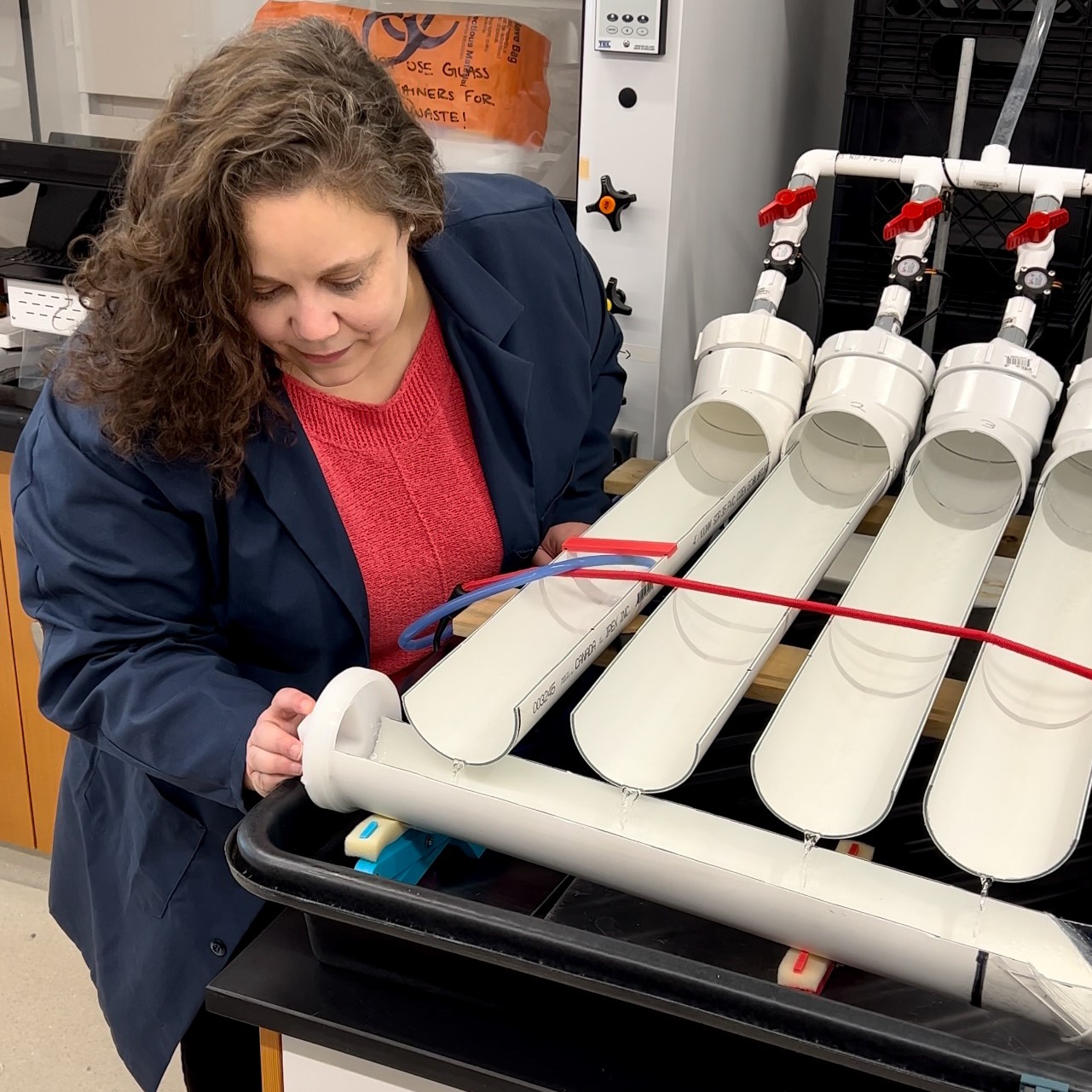Receiving fresh, safe water from a local source into our homes is a feat of science that involves more than laying pipes and opening a few taps.
The water must be treated to remove impurities and provide protection against recontamination. When it’s being treated, engineers must consider how long the water might sit in your pipes before it is used, the materials those pipes are made of, and how current treatment efforts might react with built-up minerals from past treatments. Treating water incorrectly could result in illnesses, property damage, and lifelong consequences - even as serious as brain damage caused by lead exposure.
Navigating those issues is a space where engineering, chemistry, and public health intersect, and it’s where you find researchers like Sarah Jane Payne, an Assistant Professor in the Department of Civil Engineering.
Payne’s research involves working with utilities across Canada to find ways of both improving water quality and safeguarding the health of those using it. One such utility she works with is operated by the City of Calgary.
“They want to make sure that they are producing the best possible water quality throughout their system,” she says. “It's fun to work with a partner who's just so curious.”
Payne’s expertise in water became especially valuable to Kingston at the start of the COVID-19 pandemic. Many engineers specializing in water realized early on that wastewater could be examined to get a real-time picture of COVID-19’s spread in the local community. Her lab started tracking the virus levels in the Kingston, Frontenac, Lennox, and Addington area in 2021, thanks to support from the Ontario Ministry of the Environment, and has since expanded their research to track COVID-19 and flu viruses in several communities in Eastern Ontario.

In addition, Payne and graduate student researchers are working to develop a new type of sensor which could detect metals, such as manganese, in drinking water in real-time. She is currently supervising eight graduate students, and teaches courses focused on water and wastewater engineering as well as courses on engineering ethics.
“[The courses] CIVL 300 and CIVL 400 are really about understanding your obligations as a professional engineer, developing workplace professional skills such as negotiation, and navigating unsafe workplaces or situations,” she says. “A lot of undergraduate students have had workplace experiences by this point, so we talk about their rights and obligations and how to start a difficult conversation without creating a defensive communication environment. It's workshop style, so it's quite interactive, and it is always impressive how the students come up with fresh ways to tackle tricky situations.”
Prior to joining Queen’s, Payne taught a graduate course at the University of Ottawa. She also worked at Environment and Climate Change Canada, where she worked on regulatory considerations for Arctic wastewater, and at Health Canada where she worked on the Guidelines for Canadian Drinking Water Quality. She obtained her doctorate in Civil & Resource Engineering, as well as a Certificate in University Teaching and Learning, from Dalhousie University in 2014.
“Having that teaching experience gave me a vision for what I could do career-wise, and since I applied for this role at Queen’s it has felt like the right place,” she says. “It's a thrill of a lifetime to be here, actually. There’s a strong encouragement of collaboration, not just within the department but across the university, and that really suits the interdisciplinary nature of the work I do.”